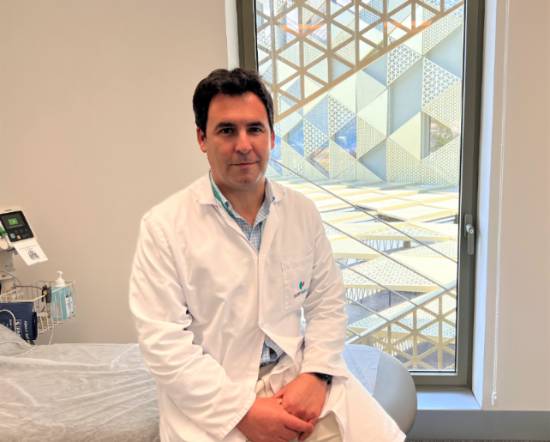Internal Medicine
Discover everything you need to know about internal medicine-one of the specialties that raises the most questions. Learn what it entails, which diseases it addresses, its typical procedures and diagnostic methods, and the symptoms that indicate you should consult an internist. Book your appointment at one of our hospitals.

What is internal medicine?
Internal medicine is a medical specialty in which physicians are trained to manage non-surgical diseases that affect multiple organ systems. Given their in-depth understanding of a wide range of conditions, internists often become trusted advisors for patients and their families. One of their key roles is conducting preventive medical evaluations and coordinating multidisciplinary treatment plans when necessary.
What does internal medicine study?
Focused on comprehensive patient care, internal medicine emphasizes a multidisciplinary approach to symptom assessment and individualized patient characteristics. Internists possess a broad understanding of human physiology and pathology, enabling them to deliver accurate and timely diagnoses. At Quirónsalud, our specialists practice within various subspecialized units, including:
- Infectious Diseases Unit: Dedicated to treating infections in hospitalized patients, managing HIV-specific care, and studying tropical and travel-related diseases.
- Rare Diseases Unit: Focused on advancing knowledge about conditions that affect a small percentage of the population.
- Preventive Medicine Unit: Aimed at preventing disease onset and promoting early detection to enhance treatment outcomes.
- Chronic Care Unit: Focused on alleviating symptoms and improving quality of life for patients with incurable chronic diseases.
Who is internal medicine for?
Internists manage patients with infectious diseases, multisystem disorders, or comorbidities affecting several organs. They are also well-prepared to assess surgical candidates, manage postoperative care, and oversee in-hospital treatment. Additionally, they are the appropriate specialists for identifying rare or diagnostically challenging conditions.
Techniques, procedures, and diagnostic methods
Internal medicine primarily employs diagnostic procedures, as treatment is often referred to the appropriate specialty service. Commonly used diagnostic tools include:
- Differential diagnosis: A method for evaluating symptoms by excluding diseases with similar clinical presentations to arrive at a definitive diagnosis.
- Vaccination: A preventive strategy that strengthens the immune system against infectious diseases.
- Lumbar puncture: A procedure involving the insertion of a needle into the lower spinal region to collect cerebrospinal fluid for diagnostic analysis.
- Ankle-brachial index (ABI): A test used to detect peripheral artery disease by comparing blood pressure in the ankle with that in the arm. A low ABI may indicate arterial obstruction in the lower extremities.
Diseases and symptoms
Major conditions and diseases
Frequently diagnosed and managed conditions in internal medicine include:
- Pneumonia
- StrokeStrokeStroke
- Pancreatitis
- DyslipidemiaDyslipidemiaDyslipidemia
- Atrial fibrillation
- Vasculitis
- Cardiac arrhythmia
- Cirrhosis
- Angina pectoris
- Heart failure
- Renal failure
- Chronic obstructive pulmonary disease (COPD)
Common symptoms
The most frequently reported symptoms in internal medicine include:
- Unexplained fever
- Elevated triglycerides
- Tachycardia
- Diarrhea
- Hypertension
- Paresthesia
- Bradycardia
- Nausea and vomiting
- Chest pain or stabbing sensations
- Night sweats
- Abdominal distension
- Jaundice
- Unintentional weight loss
About the internal medicine consultation
We solve any doubts you may have before you see the specialist
As previously stated, the primary goal of an internal medicine consultation is to establish a clear diagnosis. Therefore, a substantial portion of the visit consists of a detailed discussion between physician and patient. The internist will take a thorough personal and family medical history and record the patient’s symptoms. A physical examination will follow, and additional tests will be ordered as clinically indicated.
What should you consider?
Patients who require comprehensive care from a physician with a systemic understanding of human physiology and pathophysiology should consult an internist. An appointment should be scheduled without delay in cases of chronic illness, unexplained infections, the coexistence of multiple organ-related conditions, or when other specialists have not reached a conclusive diagnosis.
What should you bring to the consultation?
Due to the complexity of the cases typically seen in internal medicine, it is advisable to bring a list of current symptoms, previously diagnosed conditions, and medications being taken. Any prior diagnostic reports or test results can also be extremely helpful for the internist.

If you have any further questions, please contact us through the Patient Services telephone number: 900 301 013





























































































